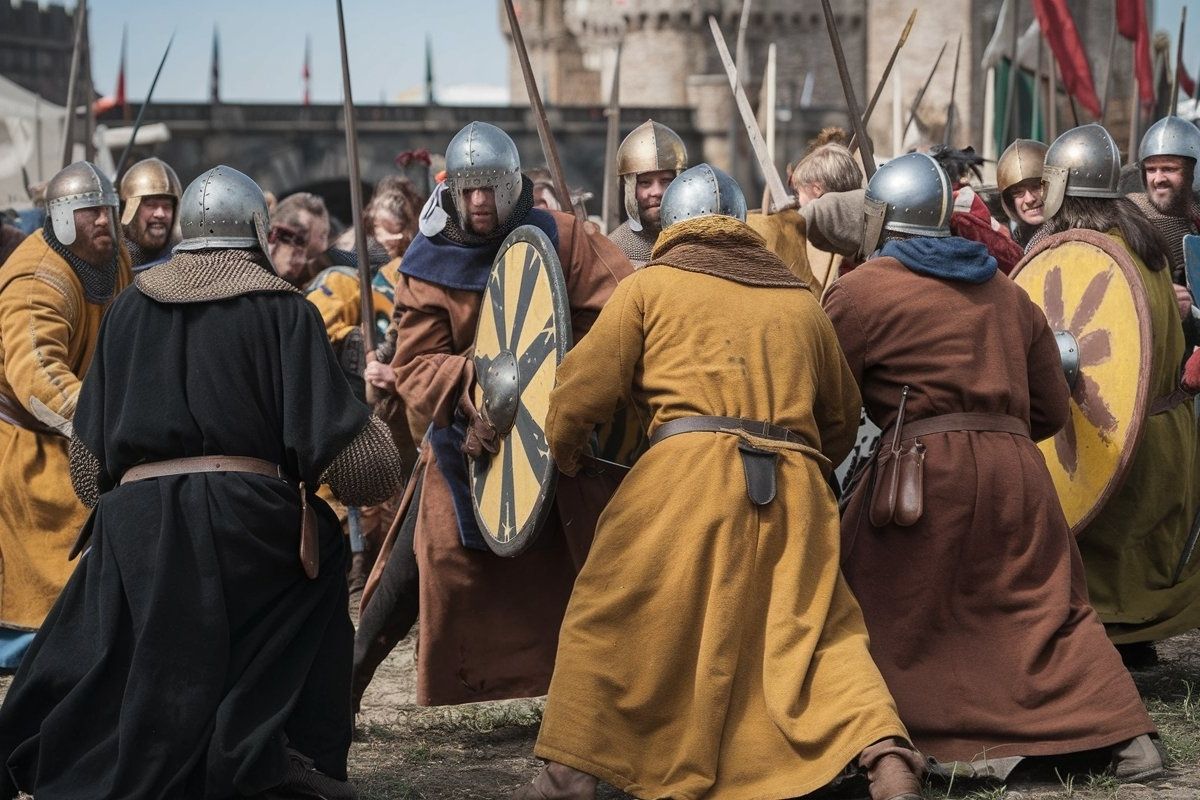
What was the Kura Rebellion? The Kura Rebellion was a significant uprising that took place in Nigeria during the early 20th century. This revolt was primarily driven by local dissatisfaction with British colonial rule, particularly the imposition of taxes and forced labor. The rebellion saw the people of Kura, a town in Kano State, rise against the colonial authorities in a bid to reclaim their autonomy and resist exploitation. Although the rebellion was eventually suppressed, it remains a poignant example of the resistance against colonial oppression. Understanding the Kura Rebellion provides valuable insights into the broader struggles for independence and self-determination in African history.
Key Takeaways:
- The Kura Rebellion was a peasant uprising in Nigeria against unfair British taxes, led by local figures and women. It inspired anti-colonial movements and left a lasting impact on the region's history.
- The rebellion's legacy lives on in Nigeria, symbolizing resistance against colonial oppression. It is remembered in historical studies, local folklore, and as a testament to the Nigerian people's resilience.
What Was the Kura Rebellion?
The Kura Rebellion was a significant event in the history of Nigeria. It took place in the early 20th century and had lasting impacts on the region. Here are some fascinating facts about this historical uprising.
-
The Kura Rebellion occurred in 1916 in the Kano Emirate, located in present-day Nigeria.
-
It was primarily a peasant revolt against the British colonial administration.
-
The rebellion was named after the town of Kura, where the uprising began.
-
The main cause of the rebellion was the imposition of heavy taxes by the British authorities.
-
The British had introduced a new system of taxation that was seen as unfair and oppressive by the local population.
Key Figures in the Kura Rebellion
Several individuals played crucial roles in the Kura Rebellion. These leaders and participants were instrumental in shaping the course of the uprising.
-
Mallam Muhammadu, a local religious leader, was one of the prominent figures who led the rebellion.
-
Muhammadu's leadership was driven by both economic grievances and religious motivations.
-
Another key figure was Sarkin Kura, the traditional ruler of Kura, who supported the rebellion.
-
The rebellion also saw the participation of various local chiefs and community leaders.
-
Women played a significant role in the rebellion, often acting as messengers and organizers.
The Course of the Rebellion
The Kura Rebellion unfolded over several months, with various key events marking its progression.
-
The rebellion began with a large gathering of peasants in Kura, who refused to pay the new taxes.
-
The British authorities initially underestimated the scale of the rebellion, leading to a delayed response.
-
The rebels attacked and destroyed several colonial administrative buildings.
-
The British eventually responded with military force, deploying troops to suppress the rebellion.
-
Despite being outnumbered and outgunned, the rebels put up a fierce resistance.
Impact and Aftermath of the Kura Rebellion
The Kura Rebellion had significant consequences for both the local population and the British colonial administration.
-
The rebellion was eventually suppressed by the British, but it left a lasting impact on the region.
-
Many of the rebellion's leaders, including Mallam Muhammadu, were captured and executed.
-
The British authorities implemented reforms to address some of the grievances that had led to the rebellion.
-
The rebellion highlighted the growing discontent with British colonial rule in Nigeria.
-
It also inspired other anti-colonial movements in the region.
Legacy of the Kura Rebellion
The legacy of the Kura Rebellion continues to be felt in Nigeria today. It is remembered as a symbol of resistance against colonial oppression.
-
The rebellion is often cited in discussions about Nigeria's colonial history and the struggle for independence.
-
It has been the subject of various historical studies and academic research.
-
The town of Kura remains an important historical site, attracting visitors interested in the rebellion's history.
-
The rebellion is commemorated in local folklore and oral traditions.
-
The Kura Rebellion serves as a reminder of the resilience and determination of the Nigerian people in the face of oppression.
Final Thoughts on the Kura Rebellion
The Kura Rebellion stands out as a significant event in history, showcasing the resilience and determination of those involved. This uprising, driven by a quest for justice and change, left a lasting impact on the region's socio-political landscape. Understanding the facts surrounding this rebellion not only enriches our knowledge of history but also offers valuable lessons on the power of collective action. As we reflect on these events, it's clear that the courage and sacrifices of the participants continue to inspire. The Kura Rebellion remains a testament to the enduring spirit of those who fight for their beliefs, reminding us of the importance of standing up for what is right. This historical episode, with its rich tapestry of events and characters, serves as a powerful reminder of the complexities and challenges faced by those who dare to challenge the status quo.
Frequently Asked Questions
Was this page helpful?
Our commitment to delivering trustworthy and engaging content is at the heart of what we do. Each fact on our site is contributed by real users like you, bringing a wealth of diverse insights and information. To ensure the highest standards of accuracy and reliability, our dedicated editors meticulously review each submission. This process guarantees that the facts we share are not only fascinating but also credible. Trust in our commitment to quality and authenticity as you explore and learn with us.
